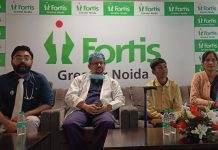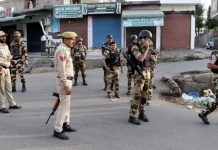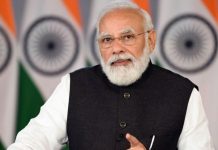How it happened doc? I was totally healthy,” asked a tall, short-haired, 30 something man who was just administered an injection meant to make him relax and sleep. The man slept immediately but his question awakened the doctor from his routine surgeries of the day and also made him figure out what actually led to his stroke.
During the initial checkup, it was said that the man was just having a psychosomatic reaction (PSR), which was the psychological reaction to the stress activated by an intense argument with his colleague.
Out of curiosity, Dr. Mittal rushed out of the ICU and moved towards his cabin to do some research on the patient’s condition. Within minutes, he had opened 15 different browser screens on his computer but couldn’t find any conclusion. Getting desperate, anxious and with squeezed eyes, he kept staring at a word- Broken Heart Syndrom (BHS).
Broken heart syndrome, also known as Takotsubo Cardiomyopathy, is a temporary heart condition that’s often is the result of emotional outburst such as stressful situations, extreme anger, fear, surprise, sudden loss or physical stress such as illness stroke, seizure, difficulty in breathing or the loss of a loved one, particularly if unexpected, a serious accident, or a natural disaster such as an earthquake, domestic abuse, arguments, financial losses.
The term “takotsubo” is taken from the Japanese name for an octopus trap, which has a shape that is similar to the systolic apical ballooning appearance of the left ventricle in the most common and typical form of this disorder.
There have been instances when two people who loved each other died one after the other or sometimes immediately to each other’s death. We have seen many families going through joint funerals or two funerals in a short span of time. Sometime back I happened to read a report in the news about a man in California died hours after his wife. The report made me think how can it happen- how usual it is-what stress led to his death?
A report that raised my suspicion was the hospitalization of former US President George H. W. Bush’s, just a day after his wife’s funeral.
The people who experience BHS feel an irreparable loss. They see hopeless future or no future at all. According to experts, to ease out the situation, it becomes highly important to help them release their stress, remove the painful memories of any event, make their future bright and acceptable. This all is possible with Neuro-Linguistic Programming (NLP), healthy lifestyle, meditation, physical fitness, counseling and health supplements like Omega 3, if required. In most of the cases, people who are not equipped well to handle tough and stressful situations fall in the trap of BHS.
 The need is to practice meditation, forgiveness, and gratitude. Learning about mental challenges like stress, anger, frustration, dissatisfaction, depression, etc. and how to handle that time can be helpful in avoiding these kinds of strokes.
The need is to practice meditation, forgiveness, and gratitude. Learning about mental challenges like stress, anger, frustration, dissatisfaction, depression, etc. and how to handle that time can be helpful in avoiding these kinds of strokes.
According to the British Heart Foundation, Broken Heart Syndrome is a “temporary condition where your heart muscle becomes suddenly weakened or stunned. The left ventricle, one of the heart’s chambers, changes shape.”
In most of the cases, people who are not equipped well to handle tough and stressful situations fall in the trap of BHS
“About three quarters of people diagnosed with takotsubo cardiomyopathy have experienced significant emotional or physical stress prior to becoming unwell,” According to a study mentioned in the book ‘Clinical manifestations and diagnosis of stress (takotsubo) cardiomyopathy’ written by DR Guy S Reeder and Dr Abhiram Prasad, among the 1759 patients in the International Takotsubo Registry study, 36 percent had a physical trigger (such as acute respiratory failure, post-surgical/fracture, central nervous system condition, or infection), 27.7 reported an emotional trigger (such as grief/loss, panic/fear/anxiety, interpersonal conflict, anger/frustration, financial or employment problem), 7.8 percent had both physical and emotional triggers, and 28.5 percent had no evident trigger.
10 Facts on broken heart syndrome
1 Broken Heart Syndrom is also known as Stress cardiomyopathy, apical ballooning syndrome, takotsubo cardiomyopathy and stress-induced cardiomyopathy
2 In almost 90 percent of cases, women are likely to develop BHS
3 It is attributed to a rush of stress hormones, especially adrenaline.
4 It is caused by the sudden stimulation of the sympathetic nervous system, which is also responsible for our “fight or flight” responses
5 It stuns the heart and gives it a severe but reversible, temporary abnormal heart fuction.
6 It occurs in otherwise healthy patients.
7 In this case, heart cells are ‘stunned’ by the adrenaline and other stress hormones but in heart attack they are killed.
8 Stress management activities are advised by the physicians. Workouts, meditation and other tools helpful to train the brain are considered effective in handling stress.
9 Stress weakens the immune system and hence the person becomes more vulnerable to strokes and BHS.
10 Learning how to deal with the stress, emotions and thoughts as advised by doctors is the best way out to guard ones physical body from unwanted diseases.
The authors also mentioned a similar systematic review which includes 19 studies of 1109 patients, which said that emotional stressors were present in 39 percent of patients and physical stressors in 35 percent.
In broken heart syndrome, there’s a temporary disruption of your heart’s normal pumping function in one area of the heart.
The remainder of the heart functions normally or with even more forceful contractions. Broken Heart Syndrome may be caused by the heart’s reaction to a surge of stress hormones. People with broken heart syndrome may have sudden chest pain or think they’re having a heart attack.
Yashica Jalhotra was seen talking to Dr Mittal and enquiring if not getting enough comments on her article could lead to Broken Heart Syndrome. Why don’t you send her some comments at letters@tehelka.com and save her from BHS.














